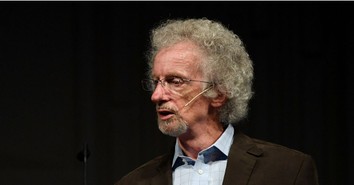Understanding "Man Shall Not Live by Bread Alone"

The phrase "Man shall not live by bread alone" is a profound biblical concept found in Matthew 4:4 and Deuteronomy 8:3. Jesus made this statement during His temptation in the wilderness, where He fasted for 40 days and nights. When Satan tempted Him to turn stones into bread, Jesus responded with these words, emphasizing the importance of spiritual sustenance over physical nourishment.
"He humbled you, causing you to hunger and then feeding you with manna, which neither you nor your ancestors had known, to teach you that man does not live on bread alone but on every word that comes from the mouth of the LORD." (Deuteronomy 8:3)
Jesus answered, “It is written: ‘Man shall not live on bread alone, but on every word that comes from the mouth of God.’” (Matthew 4:4)
Context and Biblical Background
The origin of this phrase is rooted in the Old Testament. In Deuteronomy 8:3, Moses reminds the Israelites of their reliance on God during their 40 years in the wilderness. God provided manna, a miraculous food, to teach them that their survival depended not just on physical food but on obedience to God's word. This period was a test to humble them and to make them realize that their well-being was inextricably linked to God's provisions and commands.
Jesus' Temptation in the Wilderness
In the New Testament, Jesus' use of this phrase during his temptation serves to highlight a similar dependence on God. After his baptism, Jesus was led by the Spirit into the wilderness. There, he fasted for 40 days and nights, paralleling the Israelites' 40-year journey. Satan's temptation was aimed at exploiting Jesus' physical hunger, but Jesus countered by quoting Scripture, thus reinforcing the idea that spiritual nourishment from God is paramount.
Spiritual vs. Physical Nourishment
The statement "Man shall not live by bread alone" underscores the necessity of spiritual sustenance. While physical food is essential for survival, it is not sufficient on its own. Jesus emphasizes that life is sustained by every word that comes from the mouth of God. This spiritual food includes the teachings of the Bible, prayer, and a relationship with God. According to John 6:63, Jesus further explains that his words are spirit and life, indicating that true life comes from the spiritual nourishment provided by God's word.
Applications in Daily Life
This principle has several applications in our daily lives:
Dependence on God: Just as the Israelites relied on God for daily manna, we are called to rely on God for our needs. This means trusting in his provision and guidance, especially during challenging times.
Spiritual Discipline: Engaging in practices like prayer, Bible study, and fasting helps us to focus on spiritual nourishment. These disciplines remind us that our physical needs are secondary to spiritual health.
Holistic Well-being: True well-being encompasses both physical and spiritual health. While taking care of our bodies is important, we must also prioritize our spiritual growth and relationship with God.
Jesus as the Bread of Life
Jesus often referred to himself as the "bread of life" in the Gospel of John. In John 6:35, he says, "I am the bread of life; whoever comes to me shall not hunger, and whoever believes in me shall never thirst." This verse highlights that Jesus is the ultimate source of nourishment and life itself. By living in Christ, believers find fulfillment and eternal life.
Bible Verses about Bread
John 6:32-35 - Jesus then said to them, “Truly, truly, I say to you, it was not Moses who gave you the bread from heaven, but my Father gives you the true bread from heaven. For the bread of God is he who comes down from heaven and gives life to the world.” They said to him, “Sir, give us this bread always.” Jesus said to them, “I am the bread of life; whoever comes to me shall not hunger, and whoever believes in me shall never thirst.
Matthew 26:26 - Now as they were eating, Jesus took bread, and after blessing it broke it and gave it to the disciples, and said, “Take, eat; this is my body.”
1 Corinthians 10:17 - Because there is one bread, we who are many are one body, for we all partake of the one bread.
John 6:35 - Jesus said to them, “I am the bread of life; whoever comes to me shall not hunger, and whoever believes in me shall never thirst.
Ecclesiastes 9:7 - Go, eat your bread with joy, and drink your wine with a merry heart, for God has already approved what you do.
Matthew 6:11 - Give us this day our daily bread,
John 6:47-50 - Truly, truly, I say to you, whoever believes has eternal life. I am the bread of life. Your fathers ate the manna in the wilderness, and they died. This is the bread that comes down from heaven, so that one may eat of it and not die.
"Man Shall Not Live by Bread Alone" Conclusion
"Man shall not live by bread alone" powerfully reminds us of the necessity of spiritual nourishment. While physical food sustains the body, spiritual food sustains the soul. This biblical principle calls us to seek a deeper relationship with God, relying on his word for guidance and sustenance. By doing so, we align ourselves with the true source of life and fulfillment, ensuring that we are spiritually well-fed and ready to face life's challenges.
Photo credit: ©GettyImages/Choreograph
This article is part of our larger resource library of popular Bible verse phrases and quotes. We want to provide easy to read articles that answer your questions about the meaning, origin, and history of specific verses within Scripture's context. It is our hope that these will help you better understand the meaning and purpose of God's Word in relation to your life today.
"Be Still and Know that I Am God"
"Pray Without Ceasing"
"Fearfully and Wonderfully Made"
"All Things Work Together for Good"
"Do Not Fear"
Originally published June 05, 2024.







